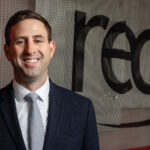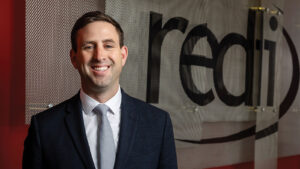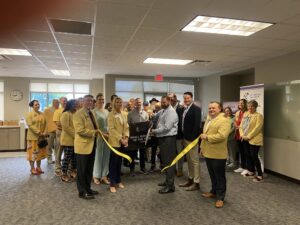Startups and investments counter ‘brain drain’ and loss of jobs.
Start small, think big.
That’s an appropriate mantra for Columbia’s entrepreneurial ecosystem, an environment that consistently produces new businesses that expand the economic boundaries of the business owners, the community, and hope for others who dream of following in those footsteps.
Now, think really big. Think millions — with an M. Think billions — with a B. More than one Columbia-born, Columbia-based company has exceeded those financial thresholds. Think StorageMart, EquipmentShare, and Zapier. Countless others are thriving on smaller scales, either advancing toward new heights or becoming part of other companies through sales or partnerships that provide capital to fuel the next big idea.
There’s a plethora of business start-up and launching resources and points in Columbia. Two of the more prominent incubators of big money, life-changing, and even lifesaving elements of the local entrepreneurial ecosystem are Missouri Startup Weekend and the Missouri Innovation Center.
Missouri Startup Weekend, coming up April 5-7 at the EquipmentShare headquarters offers a $15,000 cash prize for the winner, plus legal, marketing, mentoring, and venture capital support from other sponsors. Over three days, startup entrepreneurs will develop a business idea and compete for the chance to win significant monetary investment and mentorship to get their startup off the ground.
Over the past decade, Missouri Startup Weekend has been the birthplace of billion-dollar startup ideas. Those founders have returned with an entire community to help other entrepreneurs do the same.
Missouri Innovation Center
The Missouri Innovation Center is a non-profit organization focused on providing support for high growth business ventures that improve human life and sustainability. MIC’s website states that the center is “motivated by good ideas, exceptional people, and contributing to the growth of Mid-Missouri by attracting high growth businesses in need of assistance navigating the landscape of commercialization.”
Through offering services in mentoring, securing financial support, and providing necessary resources for conducting successful and focused research and development, MIC helps to create quality jobs in our region, improve the local economy, and develop technologies “that are capable of improving the quality of human life.”
MIC’s vast portfolio includes successes like Paytient, StoryUp, Kremenak NanoTech Inc., Elemental Enzymes, and CryoCrate, among many others.
Communities that pursue technology-led economic development strategies employ three levels of action: licensing technologies to generate capital to intensify research and innovation; creating home-grown technology ventures; and recruiting technology companies to their region. In other words, rather than create businesses that fly away to Silicon Valley or other business hubs — thereby further propagating “brain drain” from local tech communities — those jobs and the expertise can stay right here in Columbia.
MIC has the additional leverage of research and innovation already being done at the University of Missouri.
MIC was started in 1984 as part of the state’s initiative to create economic development support systems through the state’s university systems In 2009, MIC was selected by the University of Missouri to operate and maintain the MU Life Science Incubator at Monsanto Place. Within that relationship, MIC selects businesses well suited for the program, leases space for technology and bio-tech start-up companies, and provides mentorship throughout the processes of commercialization.
MIC also maintains an affiliation with the Trulaske College of Business and works closely with Centennial Investors, a mid-Missouri based angel investor network.
Not all of Columbia’s home-grown business successes have connections to Start Up Weekend or MIC, but many do.
In this profile, we’re highlighting EquipmentShare, Paytient, Veterans United Home Loans, StorageMart, and CARFAX.
EquipmentShare
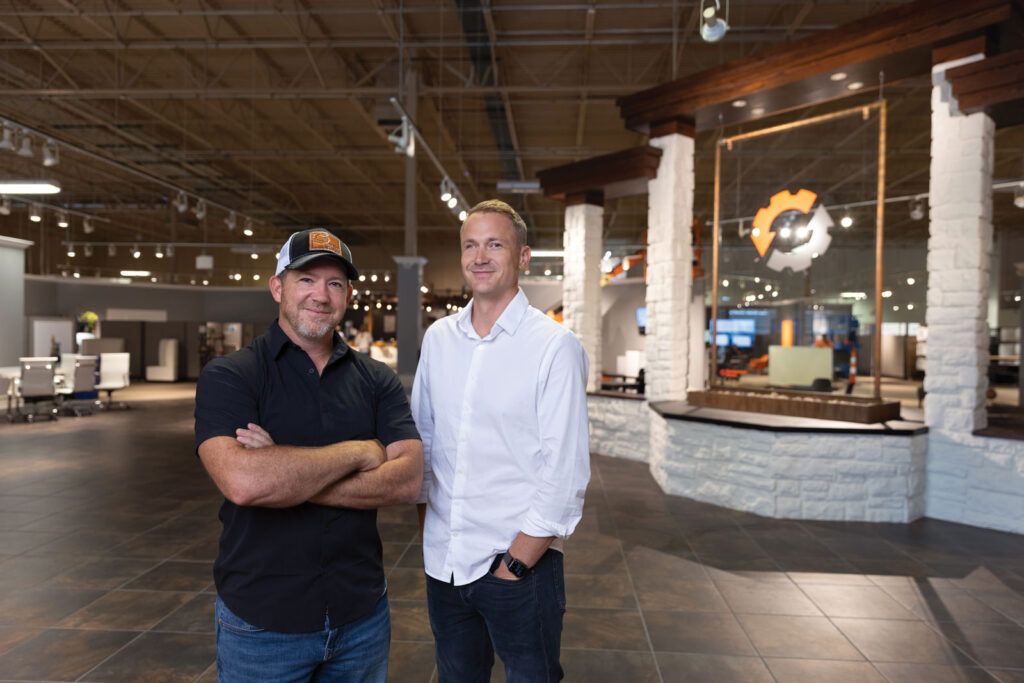
With more than 4,800 employees and 160 branch locations across the country, EquipmentShare still calls Columbia its corporate home. And last year, the company began a more than $100 million investment into a new “high-tech campus,” which is expected to be at least 10 times the size of the current, roughly 50,000-square-foot headquarters.
Company founders Jabbok and Willy Schlacks have been building businesses together since they were teenagers. Over the years, the brothers have formed construction, technology and general contracting companies, gaining first-hand experience in the construction industry. In 2015, they launched yet another business — this time, one that would make accessing and tracking construction equipment easier for contractors just like them. They called it EquipmentShare.
In 2014, the Schlacks won Startup Weekend Columbia after pitching an idea they came up with earlier in their careers, which consisted of creating a peer-to-peer marketplace where contractors could rent equipment from other contractors. After recognizing the multitude of shortcomings with equipment rental, safety, and maintenance in the construction industry, the brothers decided to make a change, giving rise to EquipmentShare, followed by the T3 operating system that is available in the equipment it rents and sells. The cloud-connected T3 platform allows contractors to monitor every aspect of their machinery’s usage and make data-driven decisions.
But the Schlacks brothers soon realized that to increase asset use for contractors and the industry at large, they needed to first build a nationwide equipment distribution network and then create a technology system that captured utilization data from any and every machine. They wanted to change the way contractors manage their assets, people and materials, and to do that, they had to think bigger.
Since launching, EquipmentShare has grown to build an ecosystem of technology solutions that addresses all the verticals of construction — assets, people, and materials. Its website says the company tackles the challenges that modern contractors feel every day by digitizing their manual processes.
“And we’re not stopping any time soon on our mission to change how construction gets work done,” the website states. EquipmentShare’s expansion will add 500 jobs to the Columbia region.
Governor Mike Parson applauded the expansion as “a major development for Columbia and great news for our state.”
“This innovative company is creating jobs, investing in its community and having a nationwide impact,” Parson said at the announcement event. “We’re proud to see EquipmentShare expanding and look forward to its continued success here in central Missouri.”
The new campus will include a flagship office building, a research-and-development center, a learning-and-development center, and additional space for offices and retail.
EquipmentShare will finance the expansion, in part, with incentives from Boone County’s Chapter 100 policy that will give the company a 75 percent break on county property tax for up to 10 years. That incentive, approved by the Boone County Commission on Aug. 30 — barely one month after EquipmentShare officially filed the Chapter 100 tax abatement paperwork. Though not required by the state law that created the Chapter 100 incentive, county officials included a panel made up of the taxing entities to study and offer feedback on the proposal.
Even with the tax abatement, the expansion is estimated to generate an additional $2 million in property tax income for Columbia Public Schools.
Fun fact:
EquipmentShare has an enrichment and events team dedicated to making employees feel valued with fun events, monthly gift cards and acknowledgments of big moments in employees’ lives.
Paytient
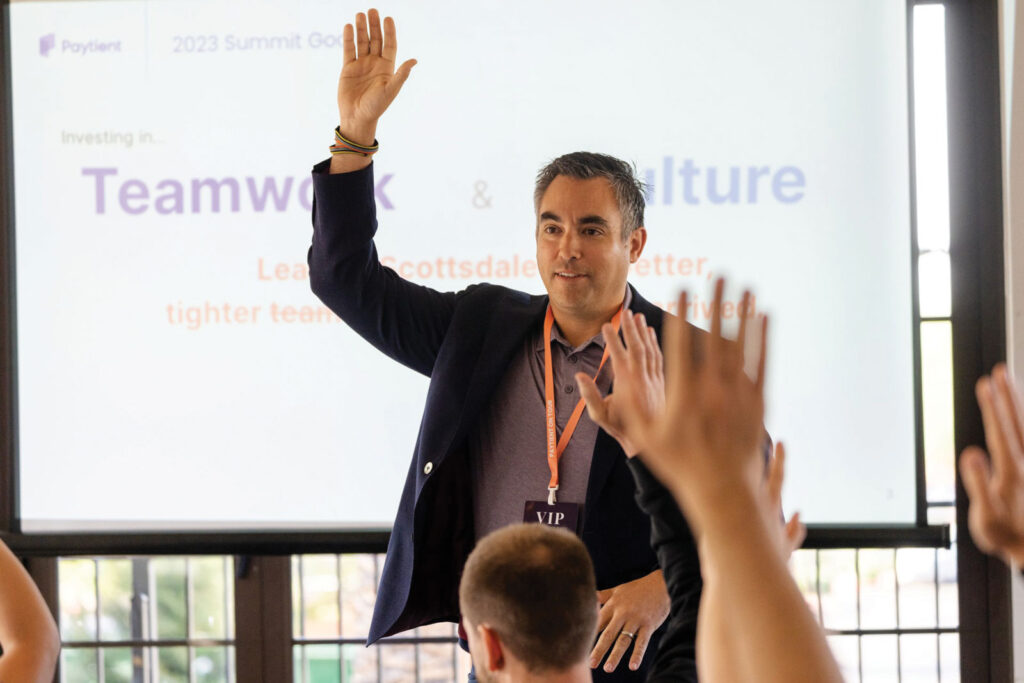
Paytient is a global team taking on the tall task of delivering accessible, affordable health care and value to employers, payers, and health systems. Paytient’s website chronicles the company’s beginning by noting that after a decade of working in hospital administration, founder Brian Whorley was troubled by the increasing number of patients who struggled with high deductibles and empty HSAs (health savings accounts). While patients were physically healing, they were in financial distress.
In 2018, Whorley and cofounder Daniel Lynn created Paytient to bring new health benefits that could ensure access to care without financial harm. Today, the company serves thousands of cardholders from across the U.S. via dozens of employers, payer, and health system partnerships.
Paytient puts Health Payment Accounts (HPAs) into the hands of employees. An HPA card puts ready-to-spend dollars in employees’ wallets so they are always prepared to pay for any care they may need. Once they swipe the Paytient card, the app prompts them to plan how they’d like to pay that bill over time, smoothing out the impact of the out-of-pocket expense on their finances.
Based on the concept of “care beyond coverage,” the HPA pairs alongside any health plan and can be a powerful bridge to better health. Members can repay their HPA balances via payroll deductions or via HSA or FSA accounts. And with no credit check to open an account, the Paytient website says, “the HPA drives access to care more equitably than other care financing solutions that have high interest rates and confusing terms.”
For employers focused on workforce attraction, retention, and productivity, the HPA is vital for engendering positive employee feedback, which Paytient tracks through surveys and employee responses.
Paytient touts itself as “remote with roots.” The company is still headquartered in Columbia, and its home office is a central place for collaboration, but employees — called “teammates” in the Paytient lexicon — are “free to work primarily from wherever they thrive.” The team meets regularly to build relationships and further Paytient’s mission.
The team’s vision also stands out: “Our team stands out, brings clarity, and blazes a path for others to follow. We work smarter (and rest well) so that we can shine a light on opportunities to improve today’s U.S. healthcare system. Shining a light requires craft, diligence, and charm.”
Paytient is also an enthusiastic cheerleader for its home city, noting the city’s fast growth, “award-winning school system,” low costs of living, clean environment, and nationally recognized quality of life. The “work for us” and recruiting elements of its website and work culture also highlights recreation opportunities in addition to local art and culture offerings.
Fun fact:
Since its founding in 2018, Paytient has raised $55.5 million in equity from leading investors including Mercato, Bertelsmann Investments, Lightbank, Felicis Ventures, Box Group, Commerce Bank, Crossbeam Ventures, and Inspired Capital.
Veterans United
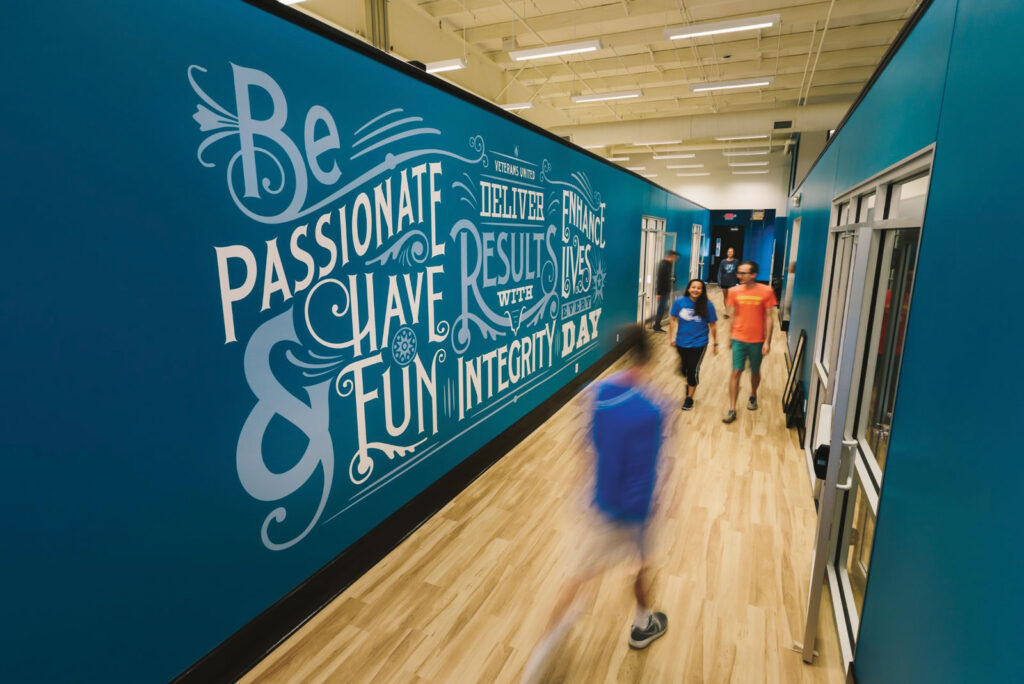
Veterans United, which has a larger building and employee footprint of any non-academic, non-government business in Columbia, is all about helping veterans and military families become homeowners. In two decades, VU closed more than a half-million VA Loans — and became the No. 1 VA lender for homebuyers in the nation.
VU is also known for its work environment and corporate culture, measured by its everyday values: Be passionate and have fun, deliver results with integrity, and enhance lives. The company has twenty-eight offices nationwide and is licensed in all fifty states.
The company, founded in 2002 by brothers Brant and Brock Bukowsky, has other businesses under its umbrella: the nonprofit Veterans United Foundation, Veterans United Realty, and Veterans United Insurance. VU Communications Manager Chad Moller said in an email that VU also has Paddio, the “civilian” counterpart to VU, with offices in Springfield, Missouri.
“Paddio’s focus is providing amazing customer service for civilians looking to buy homes all over the country,” Moller said.
Veterans United Foundation was created in 2011 and is funded by more than 4,100 Veterans United Home Loans employees, Veterans United Home Loans, and its affiliated companies. More than 90 percent of employees donate 1 percent of their paycheck to the foundation to support the mission.
The Foundation is committed to enhancing the lives of Veterans and military families nationwide by supporting non-profit organizations that strengthen local communities and honor the sacrifices of those who served our country. It also provides individual donations to current and former military members in need. More than $100 million has been raised since its founding in 2011.
During the foundation’s 10th anniversary, Veterans United Home Loans employees took a survey and voted on the causes they hold near to their hearts. Mental health treatment and awareness and Veteran homelessness fell at the top of the list while others were:
- Education and youth services
- Emergency relief and recovery
- Home ownership and adapted housing
- VUF scholarships
- Local youth, family, and veteran programs
- Social impact organizations
Funding includes projects such as Welcome Home’s initiative of beautification, increasing accessibility, and enhancing the lives of those who have served. It funded Habitat for Humanity’s efforts in Dallas and the Columbia Center for Urban Agriculture’s Veterans Urban Farm project. The largest gift of the foundation’s tenth anniversary and second largest of its history was $1.25 million to True North domestic violence shelter.
VU has consistently been named among Fortune Magazine’s 100 best companies to work for.
Fun fact:
To commemorate its 10th anniversary in 2021, Veterans United Foundation celebrated by awarding $10 million almost 100 different nonprofit organizations across the country, including nearly $8 million to local organizations and individuals.
StorageMart
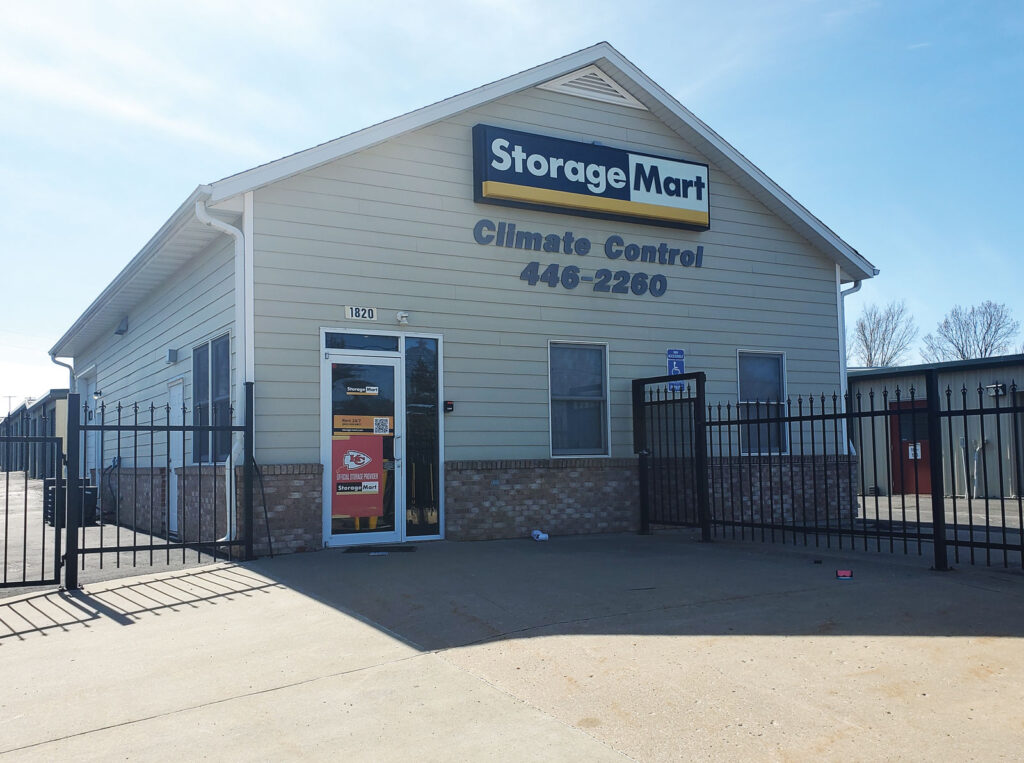
StorageMart is a chain of self-storage facilities headquartered in Columbia, that operates facilities across the U.S., Canada and the United Kingdom. StorageMart was founded in 1999 by Gordon Burnam, who had been involved in the self-storage industry since 1974. In 2021, when StorageMart acquired Manhattan Mini Storage for more than $3 billion, it was the largest transaction ever recorded in self-storage industry history at that time.
Gordon Burnam, a first-generation business owner, struck pay dirt when he invested in mini-storage units in the mid-1970s, partnering with Al Price of Boone County National Bank to build the business.
After a successful run in the industry, which culminated in Storage Trust going public in 1994 and eventually being sold to Public Storage in 1999 for $600 million, Gordon and his four children re-invented their storage business as StorageMart Partners. StorageMart now has more than 90 U.S. locations and has multiple sites throughout the U.K. and Canada.
Gordon Burnam passed in 2017, but his legacy is kept alive with four generations of Burnam’s working in the company today. His sons, Mike, Chris and Tim, and his daughter, Kim, hold leadership positions with StorageMart. In addition, the siblings formed B-Sib, LLC, which purchased and refurbished Parkade Plaza in 2004.
Gordon, a race fan, was an original investor in Moberly Speedway and previous owner of Global Travel, and a developer for many county subdivisions, including Bon-Gor Lake Estates and Haystack Acres. He was also selected as one of the seven original members of the Self Storage Hall of Fame by the Self Storage Association.
“It’s still remarkable considering how StorageMart started as a one-facility outpost in Columbia, Mo., and grew to the global entity it has become today — still run by the same family.”
— David Lucas, contributor for Mini-Storage Messenger
StorageMart’s parent company is TKG-StorageMart Group, with headquarters in Columbia. The company also sells moving and packing supplies.
As of 2023, StorageMart has more than 300 locations, making up some 15.2 million square feet of rentable space across 135,000 units.
According to its website, StorageMart has an extensive record of charitable giving to the communities it calls home through its Store It Forward program. StorageMart has provided free rent to charities like Blair’s Tree of Hope and partnered with others like Global Giving in 2017 to raise $50,000 in disaster relief for Hurricane Irma. In 2017 alone, the self-storage company donated more than $159,000 to charities, in addition to donating over $370,000 in free rent to charities throughout the US, Canada, and UK.
In 2018, StorageMart began donating $25 per online review its receives to Big Brothers Big Sisters.
Fun fact:
As of 2023, StorageMart has more than 300 locations, with over 90 U.S. locations and multiple sites throughout the U.K. and Canada, making up some 15.2 million square feet of rentable space across 135,000 units.
CARFAX
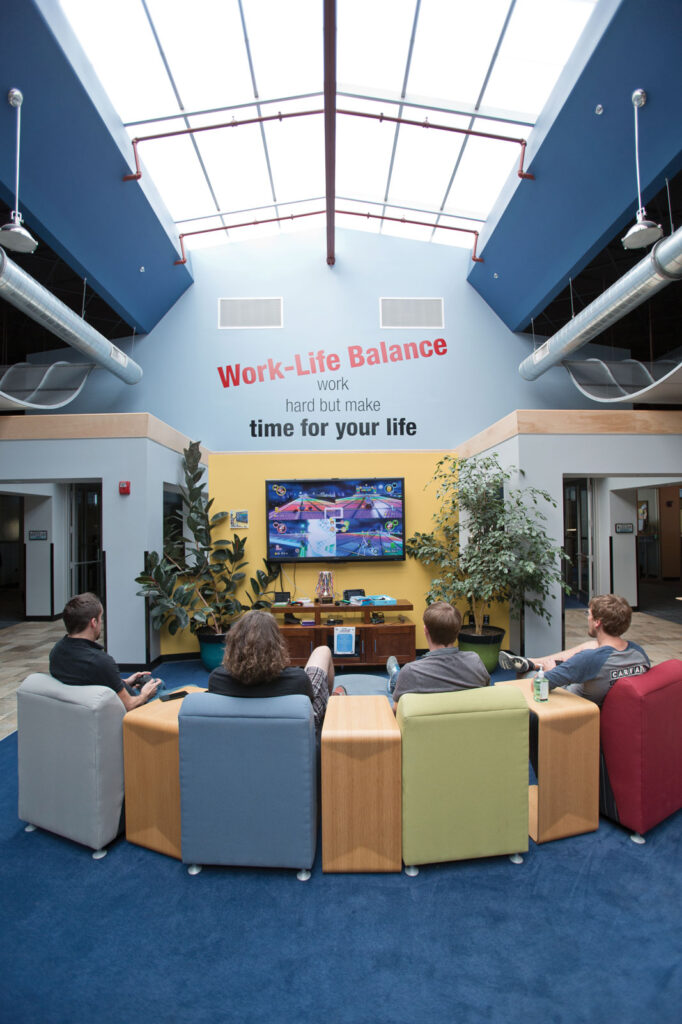
CARFAX was based solely in Columbia when it was founded in 1984 by local entrepreneur Ewin Barnett, working with Robert Daniel Clark, an accountant in Huntington, Pennsylvania. In June 2013, IHS, a business information and analytics firm, spent $1.4 billion to buy CARFAX’s parent company, privately held R.L. Polk.
IHS Inc. officials said the deal would help the company build its stake in the automotive industry. CARFAX has since developed a number of services — like CARFAX Used Car Listings and myCARFAX among them — that make it easier to buy, sell, and own a used car. The company maintains a database comprising over 18 billion vehicle history records from more than 100,000 sources worldwide. (Fun fact: The first Carfax Report run was for a 1984 Ford Thunderbird.)
The company kept its programming center in Columbia when it moved the corporate headquarters to Centreville, Virginia, in 1993. The company has more than 1,200 employees throughout the U.S. and in Canada, with offices in Virginia, Columbia, and London, Ontario. CARFAX is a leader in consumer-information technology with a database of more than 31 billion vehicle records.
While the now-familiar Car Fox branding mascot is a staple of the company’s marketing, the CARFAX work culture continues to stand out as well, earning kudos from the Washington Post and other publications, emphasizing the company’s open and innovative workspace, “team-first” culture, and mission.
In June 2023, CARFAX was awarded as a Top Workplace in Missouri for the second straight year. The award, based solely on employee feedback, is earned by companies that prioritize a people-centered culture and giving employees a voice. CARFAX is known for a unique culture that emphasizes teamwork, transparency, and making work fun. The mission-driven, high-energy workforce known as “Team CARFAX” also enjoys a strong work-life balance.
Most of Columbia’s employees are engaged in some aspect of the company’s technology: software development, programming, research and development, systems engineers, and other tasks.
CARFAX Vehicle History Reports are available on all used cars and light trucks from model year 1981 or later. Using the unique 17-character vehicle identification number (VIN), a CARFAX Report is instantly generated from the database of over 32 billion records.
Every CARFAX Report contains information that can impact a consumer’s decision about a used vehicle. Some types of information that may be included are:
- Accident and damage indicators, such as airbag deployments.
- The point of impact and a severity scale for damage events.
- Title information, including whether the car has a salvaged or junked title.
- Flood damage history.
- Total loss accident history.
- Odometer readings.
- How many owners a car has had in its lifetime.
- State emissions inspection results.
- Service records.
- Whether a vehicle was used for commercial purposes (taxi, rental, etc.).
In Columbia, CARFAX has long-standing connections and support for Great Circle, the Central Missouri Humane Society, and Youth Empowerment Zone. Even employee events pay dividends for local organizations.
Fun fact:
CARFAX receives information from more than 139,000 data sources, including every U.S. and Canadian provincial motor vehicle agency, plus many other sources. The CARFAX Report database has more than 32 billion records.



